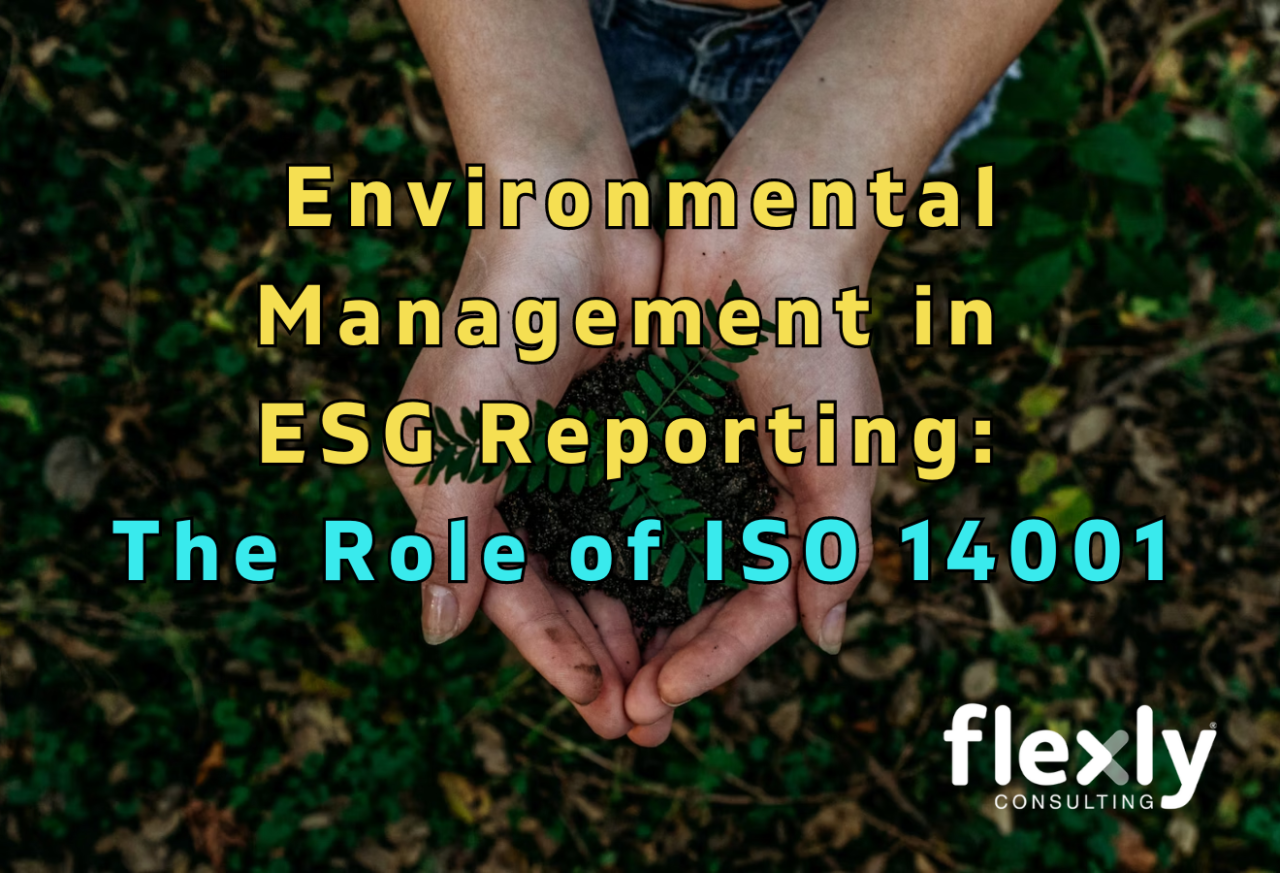In an era where environmental sustainability is leading corporate duty, businesses are increasingly turning to frameworks that provide a structured approach to managing their environmental impact. One such framework that stands out is ISO 14001, an internationally recognized standard for Environmental Management Systems (EMS). This standard not only supports organizations in enhancing their environmental performance and reduce environmental impact but also plays an important role in supporting Environmental, Social, and Governance (ESG) reporting. In this article, we’ll explore how ISO 14001 and ESG reporting are interconnected and how ISO 14001 serves as a cornerstone for a clear and effective environmental management.
Understanding ESG Reporting
ESG reporting entails the disclosure of an organization’s performance in terms of Environmental (E), Social (S), and Governance (G) factors. The environmental component focuses on a company’s impact on the planet, including areas such as carbon emissions, conservation of resource, and waste handling. As global concerns about climate change and resource depletion escalate, demonstrating environmental practices is no longer a choice but a requirement for businesses. Companies that prioritize ESG reporting not only contribute to a more sustainable and responsible global economy but also position themselves for long-term success in an increasingly ESG-aware marketplace. As legal and regulatory requirements and stakeholder expectations continue to progress, embracing ESG reporting is an investment in the future resilience and reputation of any organization.

The Convergence of ISO 14001 and ESG Reporting
1. Shared focus on Environmental Responsibility
ISO 14001 and ESG reporting have a similar basis in environmental responsibility. ISO 14001 assists organizations in recognizing and managing their environmental aspects and impacts, ensuring adhere with legal and regulatory requirements. ESG reporting requires companies to clearly disclose their environmental performance and initiatives. By adopting ISO 14001, organizations establish a robust framework for environmental management, providing a solid foundation for ESG reporting.
2. Structured Environmental Performance Monitoring
ISO 14001 requires a organized method to monitoring and measuring environmental performance. This includes setting specific objectives, gathering data, and analyzing trends. These practices provide organizations with concrete measurement to monitor their progress towards environmental objectives. These metrics not only serve as a foundation for continual improvement but also provide a wealth of data that can be directly incorporated into ESG reporting.
3. Enhanced Transparency and Credibility
ISO 14001 certification is globally recognized and signifies a company’s commitment to effective environmental management. When a company possesses ISO 14001 certification, it sends a powerful message to stakeholders, investors, and the public that it takes its environmental responsibilities seriously. This enhanced credibility can significantly strengthen the environmental aspect of ESG reporting, instilling confidence in the accuracy and authenticity of the reported data.

4. Risk Mitigation and Compliance
ISO 14001 places a significant focus on identifying and mitigating environmental risks. By proactively addressing potential environmental concerns, organizations can avoid costly incidents and regulatory penalties. This proactive approach not only preserves the environment but also protects the company’s reputation and financial stability. Demonstrating a strong commitment to risk mitigation through ISO 14001 compliance can be a compelling narrative within ESG reporting, showcasing the company’s dedication to responsible environmental procedures.
Conclusion:
ISO 14001 acts as a keystone in the intersection of environmental management and ESG reporting. By adopting ISO 14001, organizations not only protect their environmental control but also establish a basis for transparent and credible ESG reporting. This integrated approach not only benefits the environment but also places companies as responsible corporate members, prepared to address the demands of a sustainability-conscious world. Embracing ISO 14001 is a strategic move towards a more sustainable and prosperous future.
Wish to know more about ISO 14001 Certification for your business? Book our limited FREE Consultation right now!



